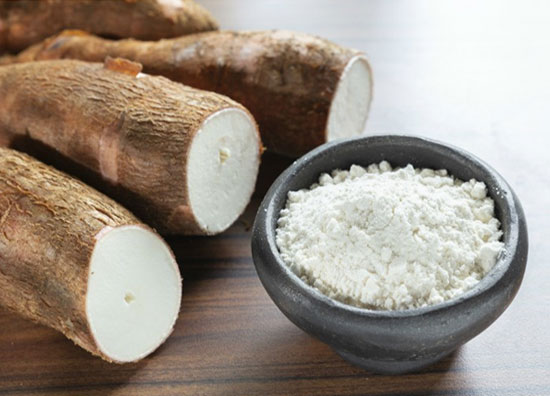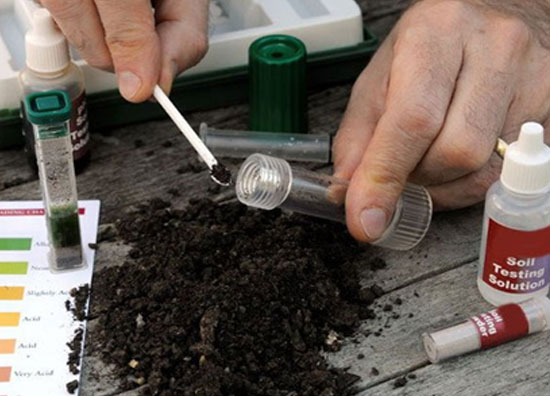What IS CASSAVA?

What is cassava?
Cassava is a root vegetable. It is the underground part of the cassava shrub, which has the Latin name Manihotesculenta. Like potatoes and yams, it is a tuber crop. Cassava roots have a similar shape to sweet potatoes.
People can also eat the leaves of the cassava plant. Humans living along the banks of the Amazon River in South America grew and consumed cassava hundreds of years before Christopher Columbus first voyaged there.
Today, more than 80 countries throughout the tropics grow cassava, and it is a primary component of the diet of more than 800 million people around the world. It is popular because it is a hardy crop that is resistant to drought and does not require much fertilizer, although it is vulnerable to bacterial and viral diseases.
What is cassava used for?
Cassava is a rich, affordable source of carbohydrates. It can provide more calories per acre of the crop than other cereals, which makes it a very useful crop in the developing world.
People prepare and eat cassava in various ways in different parts of the world, with baking and boiling being the most common methods. In some places, people ferment cassava before using it.
It is essential to peel cassava and never eat it raw. It contains dangerous levels of cyanide unless a person cooks it thoroughly before eating it.
Dishes that people can make using cassava include:
• bread, which can contain cassava flour only, or both cassava and wheat flour
• French fries
• mashed cassava
• cassava chips
• cassava bread soaked in coconut milk
• cassava cake
• cassava in coconut sauce
• yuca con mojo, a Cuban dish that combines cassava with a sauce comprising citrus juices, garlic, onion, cilantro, cumin, and oregano
In addition to eating cassava, people also use it for:
• making tapioca, which is a common dessert food
• making starch and flour products, which people can use to make gluten-free bread
• feeding animals
• making medications, fabrics, paper, and building materials, such as plywood
Scientists may eventually be able to replace high-fructose corn syrup with cassava starch. Researchers are also hoping that cassava could be a source of the alcohol that manufacturers use to make polystyrene, PVC, and other industrial products.
Benefits and nutritional profile of cassava
Cassava is a calorie-rich vegetable that contains plenty of carbohydrate and key vitamins and minerals.
Cassava is a good source of vitamin C, thiamine, riboflavin, and niacin. The leaves, which are also edible if a person cooks them or dries them in the sun, can contain up to 25 percent protein.
However, the cassava root does not deliver the same nutritional value as other tuber vegetables.
Tapioca starch is gaining attention as a source of gluten-free flour to make bread and other baked products that are suitable for people with an intolerance to gluten.
Cassava is a source of resistant starch, which scientists suggest can boost a person’s gut health by helping nurture beneficial gut bacteria. Resistant starches remain relatively unchanged as they pass through the digestive tract.
The nutritional profile of 1 cup of raw cassava is as follows:
calories: 330
protein: 2.8 grams (g)
carbohydrate: 78.4 g
fiber: 3.7 g
calcium: 33.0 milligrams (mg)
magnesium: 43.0 mg
potassium: 558.0 mg
vitamin C: 42.4 mg
thiamine, riboflavin, and niacin
Cassava contains only small amounts of proteins and fats. As a result, people who use cassava as a primary dietary staple may need to eat extra protein or take protein supplements to avoid becoming malnourished.
Since cassava leaves are a source of protein, people in some parts of the world emphasize combining the roots and leaves of the plant to address this concern.
Some health-food stores and supermarkets in the U.S. stock cassava, and people can also find a wide variety of cassava products online.
May Have Dangerous Effects in Some Circumstances or Is cassava toxic?
Cassava may be dangerous if consumed raw, in large amounts or when it is prepared improperly.
This is because raw cassava contains chemicals called cyanogenic glycosides, which can release cyanide in the body when consumed
So people should not eat cassava raw because it contains naturally occurring forms of cyanide, which are toxic to ingest. Soaking and cooking cassava makes these compounds harmless.
Eating raw or incorrectly prepared cassava can lead to severe side effects.
Even in places where cassava is a well-known part of the diet, reports have identified several hazards of eating it and taking in too much active cyanide, including:
- paralyzed legs in children
- low levels of iodine
- increased risk of goiter
- tropical ataxic neuropathy (TAN), a condition that is more common in older people and causes a loss of feeling in the hands, poor vision, weakness, walking problems, and the sensation of something being on the feet
- intoxication and eventual death.
10 Health Benefits You Can Gain From Cassava
Health Benefits Obtained
The health benefits of cassava are rich in calories, carbohydrates and iron as a good source of energy.
Incorporating cassava into a controlled healthy diet menu has turned out to have many positive effects on health.
1. Cassava loses your weight
Cassava which is rich in dietary fiber is the right choice if you can't wait to lose weight. Cassava can make you feel full for a longer period of time.Thus reducing the need to constantly snack on food so as to suppress weight gain.
2. Cassava cures migraines
The presence of vitamin B2 and riboflavin in tubers is useful for curing headaches and migraines. Eating cassava can help reduce constant migraine attacks. The trick is to take 60 grams of roots or cassava leaves and soak them in water for 2 hours then make the juice. This will reduce the severity of your migraine.
3. Cassava improves digestive health
As mentioned above, cassava is rich in dietary fiber which is very beneficial for the body and its function. Insoluble fiber helps in improving your digestive system by absorbing all the poisons stored in your intestine, and also by reducing inflammation in your digestive tract.
4. Cassava treats diarrhea
The antioxidant properties of the roots can help overcome flaccid stools. If you suffer from diarrhea, boil the roots in water for one hour and consume them. This will help to get rid of bacteria that cause stomach problems and reduce the symptoms of diarrhea as well.
5. Cassava improves vision
One of the other main benefits of cassava is that it is beneficial to your eye health.Consumption of controlled cassava can help your body with the vitamins and minerals needed. Filled with vitamin A content, cassava can help improve your vision, it can also prevent blindness or poor vision.
6. Cassava heals wounds
The whole cassava plant, namely the stems, leaves and roots are all useful in treating wounds.
Roots can help prevent wounds from becoming infected and speed healing.
7. Cassava cures fever
Cassava can be used to treat mild fever.
When boiled together with cassava leaves, it increases the ability to relieve fever. You can make potions from both of them and drink them to reduce your body temperature.
8. Cassava cleanses worms
Eating cassava can help relieve nematode lice in your stomach and intestines. Cassava roots help remove worms in your intestines and provide assistance.
9. Cassava increases appetite
Carbohydrates and fiber in cassava play an important role in regaining your appetite. If you feel weak and have no appetite, maybe for emotional or physical reasons, try putting a few pieces of cassava into your menu.
10. Cassava increases energy
Because cassava is rich in carbohydrates, edible tubers are very useful in instantly increasing your energy.This helps improve the functioning of your brain and supplies energy.But keep in mind that cassava must be cooked properly before consumption, otherwise cassava can cause acute poisoning because of the naturally occurring cyanide content in the raw state.If not prepared properly, tubers that are rich in carbohydrates can even cause paralysis or death.
Other services & information :
Our Solutions Empowering the Food Value Chain
Eagllegroup offers an ecosystem of products and services that helps everyone connected with the Food Value Chain (farmers, producers, financial institutions, state governments, etc.) make smarter decisions. This results in lower production costs, reduced lending risk, better yields, efficient marketing, increased incomes and boosting food security.
Lower Production Costs
Reduced Lending Risk
Better Yields
Efficient Marketing
Increased Incomes





